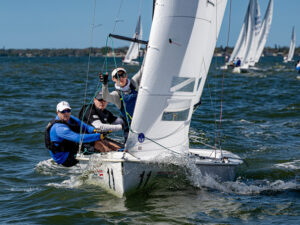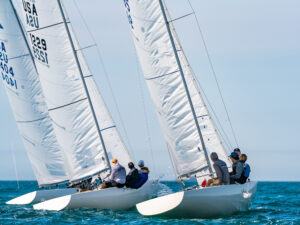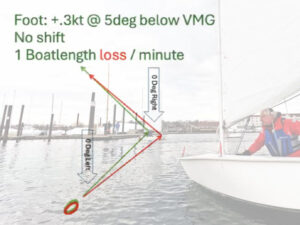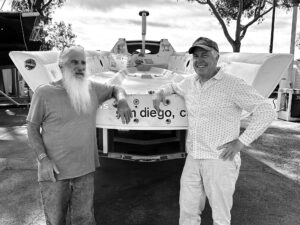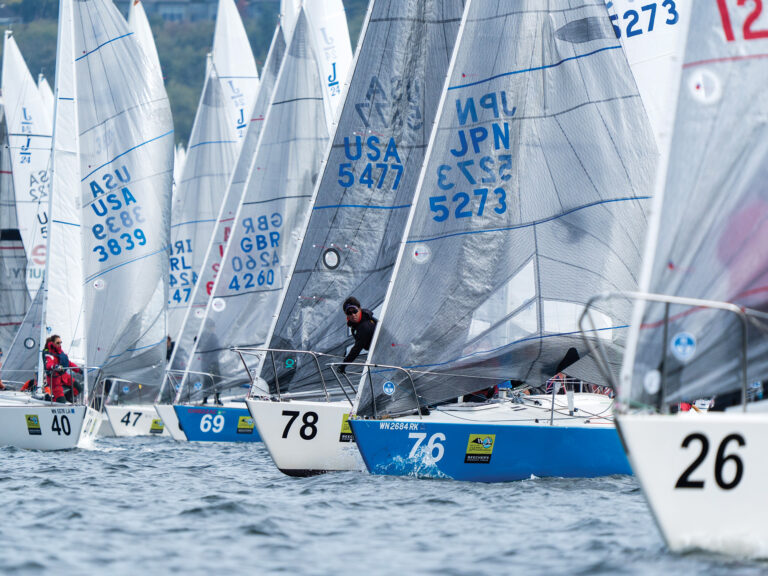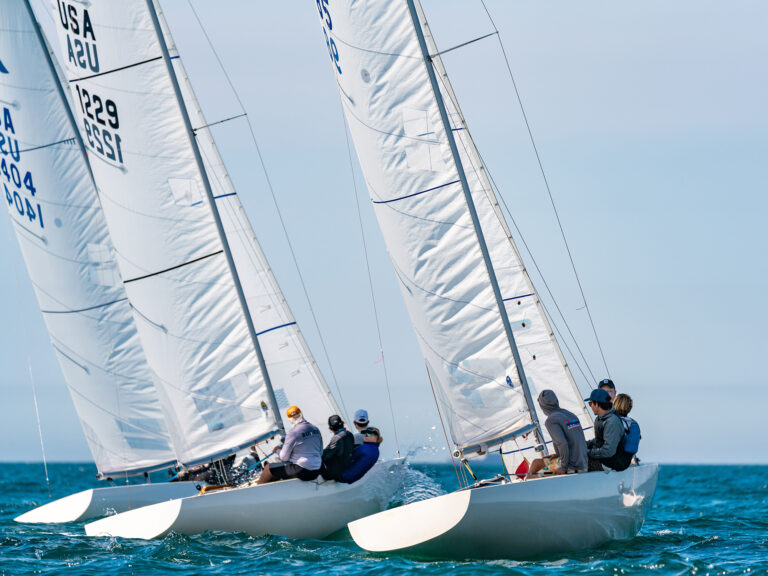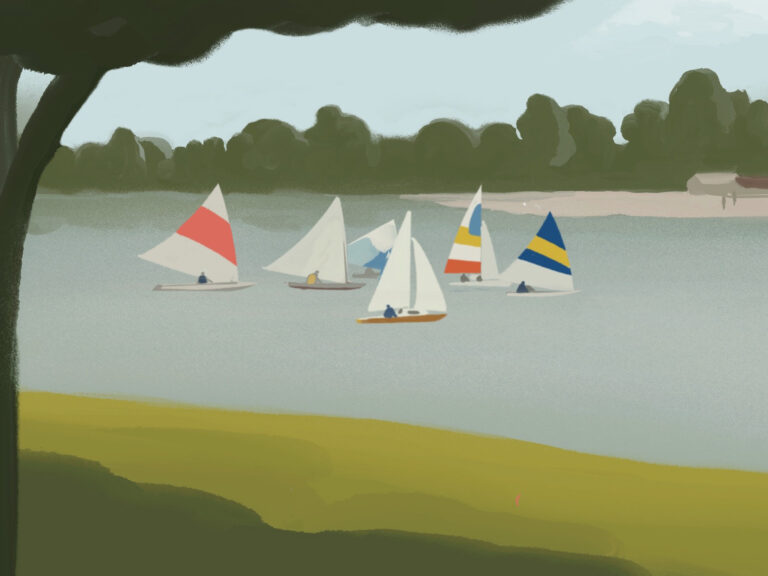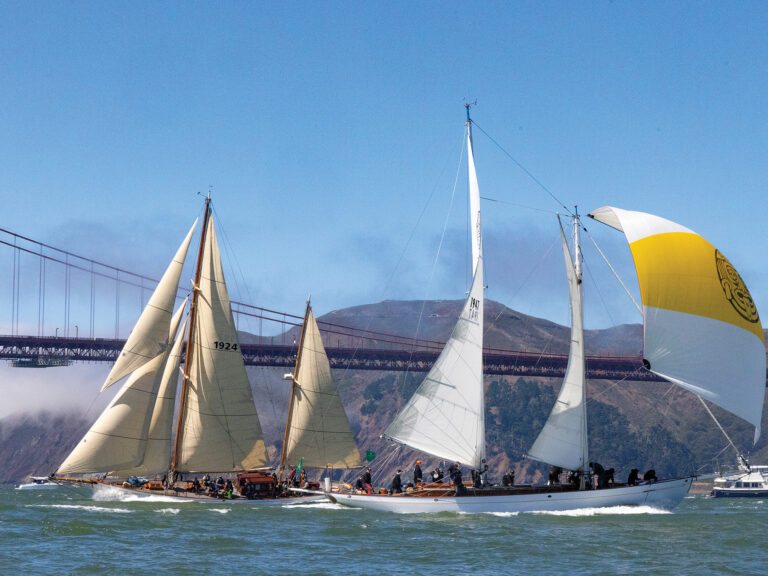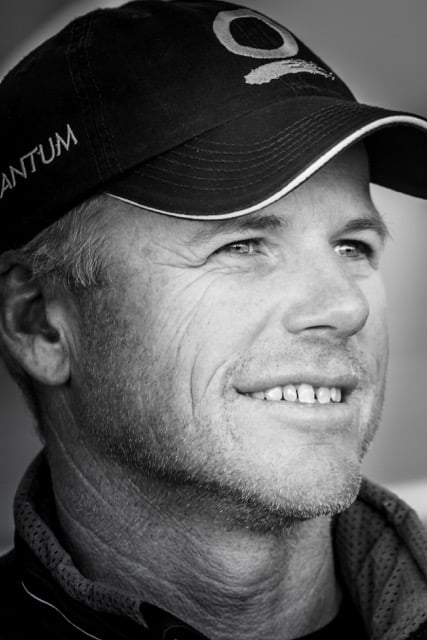
Talking through all scenarios as a team before the race can definitely lead to clearer decision-making in the moment
At a recent TP52 event in Porto Cervo, Italy, we (Quantum Racing) went into what turned out to be the last race of the series with a 2-point lead over the local Italian team, Azzurra. Knowing the strengths of our team, the approach all week had been to keep it simple and consistent—a strategy that was working.
As our one race progressed, we managed to get around the first lap with Azzurra winning and Quantum Racing second through the gates. A glamour first run saw us sail back into regatta-winning position, and in that moment, we needed to freeze time and ask a simple question: What’s the goal from here?
In hindsight, this is a real obvious answer: Protect our second-place spot and go into the last race with a 1-point lead. Yet, at the time, there was only one thought: Win the race. Perhaps I’m over analyzing, yet, when we’re in the cheap seats we will always say “the goal is fifth” or the goal is two boats down this run. This keeps the team focused on racing the boat well and not dwelling on the current position. It has a positive influence on racing the boat well through all situations.
So why not change? At this stage of the regatta, strategist Adrian Stead or I should have asked: “What’s the goal?” The answer would’ve been simple: protect second. That’s not really my mindset, and yet with a clear mind and hindsight, it’s absolutely the right statement.
What’s the lesson here? Each situation requires a different perspective. Early on in the series, our goals are obvious—consistent racing getting to the last day with an opportunity to win. Deep in a series, however, it’s different as the leaders are established. Talking through all scenarios as a team before the race will definitely lead to clearer decision-making in the moment.
What’s the counter to the argument? In this particular race, we raced to win the race and the regatta. It was shifty, and controlling the fleet was going to be tough, but we knew we were going to get pounded by Azzurra. I can easily talk myself into a reactive approach instead of proactive, which would have cost us as well. Balancing each situation will lead to a higher percentage of getting it right over wrong. Unfortunately, in this one, we never had the conversation to prompt the thought process so that was our mistake: A quick chat perhaps has a different outcome.
The takeaway is to keep the communication open, keep prioritizing, and always race to win.

